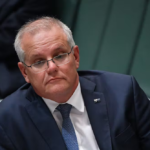Using my money as a force for good
Divestment is the opposite of investment and means getting rid of stocks, bonds or funds that are deemed unethical or morally ambiguous. Leading up to Divestment Day, Rebecca Tuma urges you to use your consumer power and put your money where your convictions are.
There have been many times in my enviro-health journey where I have felt uneasy and even a little guilty that I am not practicing what I preach. The more knowledge I gather along the way about human actions and their consequences, the more I desire to change my behaviour to cause less harm.
This has prompted me to eat more of a vegetarian diet and choose not to own a car and opt instead to travel by bicycle. At a Doctors for the Environment Australia conference a couple of years back, I learnt about another powerful tool for change – divestment! DEA’s recent report on the need for health professionals and the health sector to lead on this issue makes compelling reading.
Divestment is the opposite of investment, and it simply means getting rid of stocks, bonds or funds that are unethical or morally ambiguous.
Discovering that the big four banks – Commonwealth, NAB, Westpac and ANZ – are crucial to the functioning of the coal, oil and gas industries in Australia was a shocking revelation. From 2008 to 2015 the big four banks were involved in 76% of all the loans to mines, power stations, drilling and ports.
It was scary realising that my money had been funding horrendous projects with profound health and environmental impacts, and was compounding the very issues that I am training to be a doctor to resolve.
However because I am hopeless with banking and have a laughable amount of bank savings, I put off divesting until my hypocrisy annoyed me too much to ignore. By then I also realised that being a student with a simple bank account without complex mortgages is the easiest time to do it!
Here are the four steps I took to ensure my money is used as a force for good:
- Visited Market Forces’ website for information on the process of divestment – including finding a bank that has only sustainable investments.
- Made a trip to the Commonwealth bank and withdrew my money.
- Opened a new account with the bank I chose (Peoples Choice Credit Union).
- Banked the cheque and set up the few automatic transfers I had (for rent and the like).
And that was it – so easy!
The amazing feeling I had walking out of Commonwealth bank was so well worth the small effort. The woman that closed my account said how proud she was, and that actions like mine are making the future a better place for her kids. She was not aware of the divestment movement, and I could tell that it prompted much reflection for her.
The process was also a lot of fun, with many interesting conversations had along the way.
Now that I have shared my divestment experience, go out and make your own (if you already haven’t).
Every person who switches their accounts or loans to a fossil free bank sends a powerful message to their financial institution: “If you choose fossil fuels, your customers will choose another bank!”
Peace out.
This year’s Divestment Day is on Saturday 8 October in the major capital cities and Friday 7 October elsewhere.
Rebecca Tuma is a medical student at James Cook University in Queensland and a member of Doctors for the Environment Australia.












Max Thomas
October 7, 2016 at 4:51 am
Divestment: a cool warm feeling but will it change the climate?
I admire that you are trying to put your convictions into action Rebecca. I've retired from working in the water industry on water recycling and land management. A few years ago I visited Cuba for the music and the vintage cars, but I also wanted to see for myself how the people actually live. It was interesting to see Cuban agriculture and learn something about their celebrated health system. As you would know, a sensible conversation about health must include the environment. Unfortunately, I found that sanitation is neglected in Cuba and the water is often unsafe to drink. Sanitation is surely the foundation of public health more than high-tech medicine. The US embargo bites deep and things are tough. This manifests in a high incidence of easily preventable water-borne disease. It's not surprising to find that things aren't always as they appear. Travellers must have insurance but the Cuban authorities don't recognise USA underwriters. Like insurance companies, banks are nebulous institutions. You find by digging around that everything is connected to everything else; a bit like the human genome I suppose. One company I looked at seemed to be distantly related to a manufacturer that used slave labour during the Nazi era. After all that, the Cuban immigration office at Havana looked at my certificate and waved me through as if to say "it's all too hard". Take a look at superannuation and you'll find trying to unravel that is impossible. Directly or indirectly, financial institutions will have investments linked to steel which is inextricably linked to coal. Malcolm Fraser facetiously advised putting our money under the mattress, perhaps he was onto something.